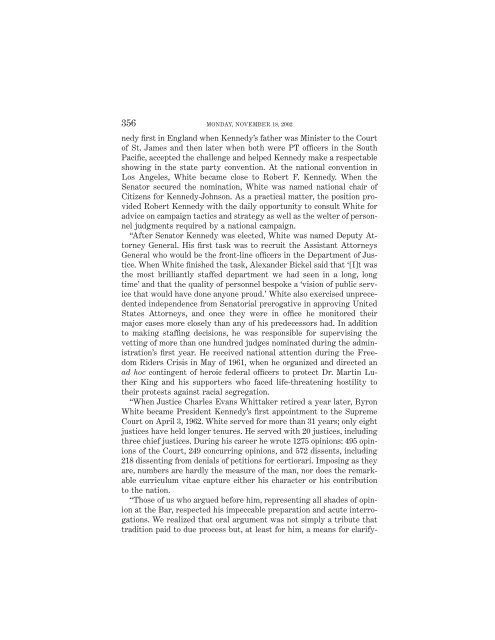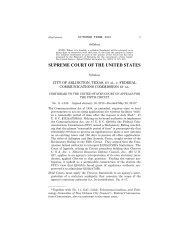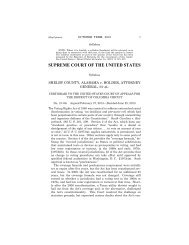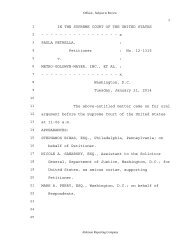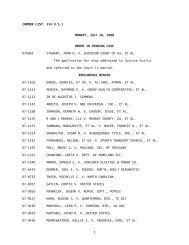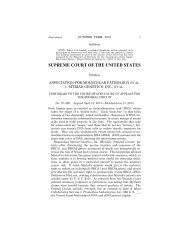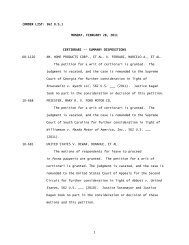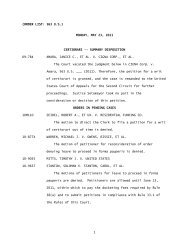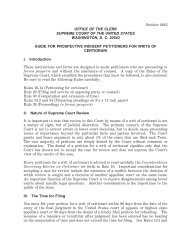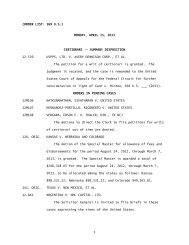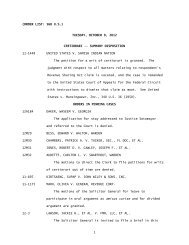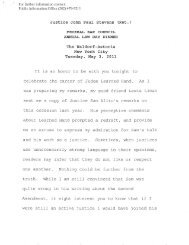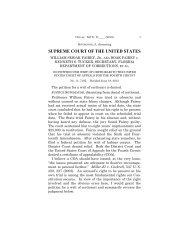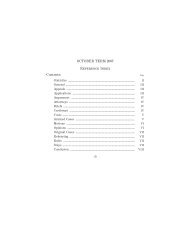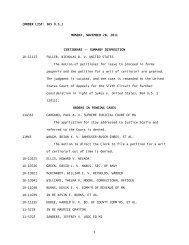- Page 1 and 2:
JNL02$IND1—10-21-03 15:22:36 JNLI
- Page 3 and 4:
JNL02$IND4—10-21-03 15:26:39 JNLI
- Page 5 and 6:
JNL02$IND4—10-21-03 15:26:39 JNLI
- Page 7 and 8:
JNL02$IND4—10-21-03 15:26:39 JNLI
- Page 9 and 10:
JNL02$1007—07-24-03 16:16:12 JOUR
- Page 11 and 12:
JNL02$1007—07-24-03 16:16:12 JOUR
- Page 13 and 14:
JNL02$1007—07-24-03 16:16:12 JOUR
- Page 15 and 16:
JNL02$1007—07-24-03 16:16:12 JOUR
- Page 17 and 18:
JNL02$1007—07-24-03 16:16:12 JOUR
- Page 19 and 20:
JNL02$1007—07-24-03 16:16:12 JOUR
- Page 21 and 22:
JNL02$1007—07-24-03 16:16:12 JOUR
- Page 23 and 24:
JNL02$1007—07-24-03 16:16:12 JOUR
- Page 25 and 26:
JNL02$1007—07-24-03 16:16:12 JOUR
- Page 27 and 28:
JNL02$1007—07-24-03 16:16:12 JOUR
- Page 29 and 30:
JNL02$1007—07-24-03 16:16:12 JOUR
- Page 31 and 32:
JNL02$1007—07-24-03 16:16:12 JOUR
- Page 33 and 34:
JNL02$1007—07-24-03 16:16:12 JOUR
- Page 35 and 36:
JNL02$1007—07-24-03 16:16:12 JOUR
- Page 37 and 38:
JNL02$1007—07-24-03 16:16:12 JOUR
- Page 39 and 40:
JNL02$1007—07-24-03 16:16:12 JOUR
- Page 41 and 42:
JNL02$1007—07-24-03 16:16:12 JOUR
- Page 43 and 44:
JNL02$1007—07-24-03 16:16:12 JOUR
- Page 45 and 46:
JNL02$1007—07-24-03 16:16:13 JOUR
- Page 47 and 48:
JNL02$1007—07-24-03 16:16:13 JOUR
- Page 49 and 50:
JNL02$1007—07-24-03 16:16:13 JOUR
- Page 51 and 52:
JNL02$1007—07-24-03 16:16:13 JOUR
- Page 53 and 54:
JNL02$1007—07-24-03 16:16:13 JOUR
- Page 55 and 56:
JNL02$1007—07-24-03 16:16:13 JOUR
- Page 57 and 58:
JNL02$1007—07-24-03 16:16:13 JOUR
- Page 59 and 60:
JNL02$1007—07-24-03 16:16:13 JOUR
- Page 61 and 62:
JNL02$1007—07-24-03 16:16:13 JOUR
- Page 63 and 64:
JNL02$1007—07-24-03 16:16:13 JOUR
- Page 65 and 66:
JNL02$1007—07-24-03 16:16:13 JOUR
- Page 67 and 68:
JNL02$1007—07-24-03 16:16:13 JOUR
- Page 69 and 70:
JNL02$1007—07-24-03 16:16:13 JOUR
- Page 71 and 72:
JNL02$1007—07-24-03 16:16:13 JOUR
- Page 73 and 74:
JNL02$1007—07-24-03 16:16:13 JOUR
- Page 75 and 76:
JNL02$1007—07-24-03 16:16:13 JOUR
- Page 77 and 78:
JNL02$1007—07-24-03 16:16:13 JOUR
- Page 79 and 80:
JNL02$1007—07-24-03 16:16:13 JOUR
- Page 81 and 82:
JNL02$1007—07-24-03 16:16:13 JOUR
- Page 83 and 84:
JNL02$1007—07-24-03 16:16:13 JOUR
- Page 85 and 86:
JNL02$1007—07-24-03 16:16:13 JOUR
- Page 87 and 88:
JNL02$1007—07-24-03 16:16:13 JOUR
- Page 89 and 90:
JNL02$1007—07-24-03 16:16:13 JOUR
- Page 91 and 92:
JNL02$1007—07-24-03 16:16:13 JOUR
- Page 93 and 94:
JNL02$1007—07-24-03 16:16:13 JOUR
- Page 95 and 96:
JNL02$1007—07-24-03 16:16:13 JOUR
- Page 97 and 98:
JNL02$1007—07-24-03 16:16:13 JOUR
- Page 99 and 100:
JNL02$1007—07-24-03 16:16:13 JOUR
- Page 101 and 102:
JNL02$1007—07-24-03 16:16:13 JOUR
- Page 103 and 104:
JNL02$1007—07-24-03 16:16:13 JOUR
- Page 105 and 106:
JNL02$1007—07-24-03 16:16:13 JOUR
- Page 107 and 108:
JNL02$1007—07-24-03 16:16:13 JOUR
- Page 109 and 110:
JNL02$1007—07-24-03 16:16:13 JOUR
- Page 111 and 112:
JNL02$1007—07-24-03 16:16:13 JOUR
- Page 113 and 114:
JNL02$1007—07-24-03 16:16:13 JOUR
- Page 115 and 116:
JNL02$1007—07-24-03 16:16:13 JOUR
- Page 117 and 118:
JNL02$1007—07-24-03 16:16:13 JOUR
- Page 119 and 120:
JNL02$1007—07-24-03 16:16:13 JOUR
- Page 121 and 122:
JNL02$1007—07-24-03 16:16:13 JOUR
- Page 123 and 124:
JNL02$1007—07-24-03 16:16:13 JOUR
- Page 125 and 126:
JNL02$1007—07-24-03 16:16:13 JOUR
- Page 127 and 128:
JNL02$1007—07-24-03 16:16:13 JOUR
- Page 129 and 130:
JNL02$1007—07-24-03 16:16:13 JOUR
- Page 131 and 132:
JNL02$1007—07-24-03 16:16:13 JOUR
- Page 133 and 134:
JNL02$1007—07-24-03 16:16:13 JOUR
- Page 135 and 136:
JNL02$1007—07-24-03 16:16:13 JOUR
- Page 137 and 138:
JNL02$1007—07-24-03 16:16:13 JOUR
- Page 139 and 140:
JNL02$1007—07-24-03 16:16:13 JOUR
- Page 141 and 142:
JNL02$1007—07-24-03 16:16:13 JOUR
- Page 143 and 144:
JNL02$1007—07-24-03 16:16:13 JOUR
- Page 145 and 146:
JNL02$1007—07-24-03 16:16:13 JOUR
- Page 147 and 148:
JNL02$1007—07-24-03 16:16:13 JOUR
- Page 149 and 150:
JNL02$1007—07-24-03 16:16:13 JOUR
- Page 151 and 152:
JNL02$1007—07-24-03 16:16:13 JOUR
- Page 153 and 154:
JNL02$1007—07-24-03 16:16:13 JOUR
- Page 155 and 156:
JNL02$1007—07-24-03 16:16:13 JOUR
- Page 157 and 158:
JNL02$1007—07-24-03 16:16:13 JOUR
- Page 159 and 160:
JNL02$1007—07-24-03 16:16:13 JOUR
- Page 161 and 162:
JNL02$1007—07-24-03 16:16:13 JOUR
- Page 163 and 164:
JNL02$1007—07-24-03 16:16:13 JOUR
- Page 165 and 166:
JNL02$1007—07-24-03 16:16:13 JOUR
- Page 167 and 168:
JNL02$1007—07-24-03 16:16:13 JOUR
- Page 169 and 170:
JNL02$1007—07-24-03 16:16:13 JOUR
- Page 171 and 172:
JNL02$1007—07-24-03 16:16:13 JOUR
- Page 173 and 174:
JNL02$1007—07-24-03 16:16:13 JOUR
- Page 175 and 176:
JNL02$1007—07-24-03 16:16:13 JOUR
- Page 177 and 178:
JNL02$1007—07-24-03 16:16:13 JOUR
- Page 179 and 180:
JNL02$1007—07-24-03 16:16:13 JOUR
- Page 181 and 182:
JNL02$1007—07-24-03 16:16:13 JOUR
- Page 183 and 184:
JNL02$1007—07-24-03 16:16:13 JOUR
- Page 185 and 186:
JNL02$1007—07-24-03 16:16:13 JOUR
- Page 187 and 188:
JNL02$1007—07-24-03 16:16:13 JOUR
- Page 189 and 190:
JNL02$1007—07-24-03 16:16:13 JOUR
- Page 191 and 192:
JNL02$1007—07-24-03 16:16:13 JOUR
- Page 193 and 194:
JNL02$1007—07-24-03 16:16:13 JOUR
- Page 195 and 196:
JNL02$1007—07-24-03 16:16:14 JOUR
- Page 197 and 198:
JNL02$1007—07-24-03 16:16:14 JOUR
- Page 199 and 200:
JNL02$1007—07-24-03 16:16:14 JOUR
- Page 201 and 202:
JNL02$1007—07-24-03 16:16:14 JOUR
- Page 203 and 204:
JNL02$1007—07-24-03 16:16:14 JOUR
- Page 205 and 206:
JNL02$1007—07-24-03 16:16:14 JOUR
- Page 207 and 208:
JNL02$1007—07-24-03 16:16:14 JOUR
- Page 209 and 210:
JNL02$1008—10-19-02 18:24:23 JOUR
- Page 211 and 212:
JNL02$1009—10-19-02 18:25:22 JOUR
- Page 213 and 214:
JNL02$1015—07-24-03 16:19:38 JOUR
- Page 215 and 216:
JNL02$1015—07-24-03 16:19:38 JOUR
- Page 217 and 218:
JNL02$1015—07-24-03 16:19:38 JOUR
- Page 219 and 220:
JNL02$1015—07-24-03 16:19:38 JOUR
- Page 221 and 222:
JNL02$1015—07-24-03 16:19:38 JOUR
- Page 223 and 224:
JNL02$1015—07-24-03 16:19:38 JOUR
- Page 225 and 226:
JNL02$1015—07-24-03 16:19:38 JOUR
- Page 227 and 228:
JNL02$1015—07-24-03 16:19:38 JOUR
- Page 229 and 230:
JNL02$1015—07-24-03 16:19:38 JOUR
- Page 231 and 232:
JNL02$1015—07-24-03 16:19:38 JOUR
- Page 233 and 234:
JNL02$1015—07-24-03 16:19:38 JOUR
- Page 235 and 236:
JNL02$1015—07-24-03 16:19:38 JOUR
- Page 237 and 238:
JNL02$1015—07-24-03 16:19:38 JOUR
- Page 239 and 240:
JNL02$1015—07-24-03 16:19:38 JOUR
- Page 241 and 242:
JNL02$1015—07-24-03 16:19:38 JOUR
- Page 243 and 244:
JNL02$1015—07-24-03 16:19:38 JOUR
- Page 245 and 246:
JNL02$1016—10-22-02 19:14:49 JOUR
- Page 247 and 248:
JNL02$1021—07-31-03 19:21:38 JOUR
- Page 249 and 250:
JNL02$1021—07-31-03 19:21:38 JOUR
- Page 251 and 252:
JNL02$1021—07-31-03 19:21:38 JOUR
- Page 253 and 254:
JNL02$1021—07-31-03 19:21:38 JOUR
- Page 255 and 256:
JNL02$1021—07-31-03 19:21:38 JOUR
- Page 257 and 258:
JNL02$1021—07-31-03 19:21:38 JOUR
- Page 259 and 260:
JNL02$1021—07-31-03 19:21:38 JOUR
- Page 261 and 262:
JNL02$1021—07-31-03 19:21:38 JOUR
- Page 263 and 264:
JNL02$1021—07-31-03 19:21:38 JOUR
- Page 265 and 266:
JNL02$1021—07-31-03 19:21:38 JOUR
- Page 267 and 268:
JNL02$1021—07-31-03 19:21:38 JOUR
- Page 269 and 270:
JNL02$1021—07-31-03 19:21:38 JOUR
- Page 271 and 272:
JNL02$1021—07-31-03 19:21:38 JOUR
- Page 273 and 274:
JNL02$1021—07-31-03 19:21:38 JOUR
- Page 275 and 276:
JNL02$1024—10-25-02 19:22:06 JOUR
- Page 277 and 278:
JNL02$1101—11-01-02 16:54:55 JOUR
- Page 279 and 280:
JNL02$1104—07-24-03 16:27:04 JOUR
- Page 281 and 282:
JNL02$1104—07-24-03 16:27:04 JOUR
- Page 283 and 284:
JNL02$1104—07-24-03 16:27:04 JOUR
- Page 285 and 286:
JNL02$1104—07-24-03 16:27:04 JOUR
- Page 287 and 288:
JNL02$1104—07-24-03 16:27:04 JOUR
- Page 289 and 290:
JNL02$1104—07-24-03 16:27:04 JOUR
- Page 291 and 292:
JNL02$1104—07-24-03 16:27:04 JOUR
- Page 293 and 294:
JNL02$1104—07-24-03 16:27:04 JOUR
- Page 295 and 296:
JNL02$1104—07-24-03 16:27:04 JOUR
- Page 297 and 298:
JNL02$1104—07-24-03 16:27:04 JOUR
- Page 299 and 300:
JNL02$1104—07-24-03 16:27:04 JOUR
- Page 301 and 302:
JNL02$1104—07-24-03 16:27:04 JOUR
- Page 303 and 304:
JNL02$1104—07-24-03 16:27:04 JOUR
- Page 305 and 306: JNL02$1104—07-24-03 16:27:04 JOUR
- Page 307 and 308: JNL02$1105—11-12-02 21:16:41 JOUR
- Page 309 and 310: JNL02$1106—11-12-02 21:22:27 JOUR
- Page 311 and 312: JNL02$1112—08-11-03 16:28:25 JOUR
- Page 313 and 314: JNL02$1112—08-11-03 16:28:25 JOUR
- Page 315 and 316: JNL02$1112—08-11-03 16:28:25 JOUR
- Page 317 and 318: JNL02$1112—08-11-03 16:28:25 JOUR
- Page 319 and 320: JNL02$1112—08-11-03 16:28:25 JOUR
- Page 321 and 322: JNL02$1112—08-11-03 16:28:25 JOUR
- Page 323 and 324: JNL02$1112—08-11-03 16:28:25 JOUR
- Page 325 and 326: JNL02$1112—08-11-03 16:28:25 JOUR
- Page 327 and 328: JNL02$1113—07-31-03 19:23:23 JOUR
- Page 329 and 330: JNL02$1114—07-24-03 16:32:03 JOUR
- Page 331 and 332: JNL02$1118—07-24-03 17:03:19 JOUR
- Page 333 and 334: JNL02$1118—07-24-03 17:03:19 JOUR
- Page 335 and 336: JNL02$1118—07-24-03 17:03:19 JOUR
- Page 337 and 338: JNL02$1118—07-24-03 17:03:19 JOUR
- Page 339 and 340: JNL02$1118—07-24-03 17:03:19 JOUR
- Page 341 and 342: JNL02$1118—07-24-03 17:03:19 JOUR
- Page 343 and 344: JNL02$1118—07-24-03 17:03:19 JOUR
- Page 345 and 346: JNL02$1118—07-24-03 17:03:19 JOUR
- Page 347 and 348: JNL02$1118—07-24-03 17:03:19 JOUR
- Page 349 and 350: JNL02$1118—07-24-03 17:03:19 JOUR
- Page 351 and 352: JNL02$1118—07-24-03 17:03:19 JOUR
- Page 353 and 354: JNL02$1118—07-24-03 17:03:19 JOUR
- Page 355: JNL02$1118—07-24-03 17:03:19 JOUR
- Page 359 and 360: JNL02$1118—07-24-03 17:03:19 JOUR
- Page 361 and 362: JNL02$1118—07-24-03 17:03:19 JOUR
- Page 363 and 364: JNL02$1118—07-24-03 17:03:19 JOUR
- Page 365 and 366: JNL02$1118—07-24-03 17:03:19 JOUR
- Page 367 and 368: JNL02$1118—07-24-03 17:03:19 JOUR
- Page 369 and 370: JNL02$1118—07-24-03 17:03:19 JOUR
- Page 371 and 372: JNL02$1119—12-04-02 13:49:30 JOUR
- Page 373 and 374: JNL02$1127—12-04-02 15:50:55 JOUR
- Page 375 and 376: JNL02$1202—07-24-03 17:12:44 JOUR
- Page 377 and 378: JNL02$1202—07-24-03 17:12:44 JOUR
- Page 379 and 380: JNL02$1202—07-24-03 17:12:44 JOUR
- Page 381 and 382: JNL02$1202—07-24-03 17:12:44 JOUR
- Page 383 and 384: JNL02$1202—07-24-03 17:12:44 JOUR
- Page 385 and 386: JNL02$1202—07-24-03 17:12:44 JOUR
- Page 387 and 388: JNL02$1202—07-24-03 17:12:44 JOUR
- Page 389 and 390: JNL02$1202—07-24-03 17:12:44 JOUR
- Page 391 and 392: JNL02$1202—07-24-03 17:12:44 JOUR
- Page 393 and 394: JNL02$1202—07-24-03 17:12:44 JOUR
- Page 395 and 396: JNL02$1202—07-24-03 17:12:44 JOUR
- Page 397 and 398: JNL02$1202—07-24-03 17:12:44 JOUR
- Page 399 and 400: JNL02$1202—07-24-03 17:12:44 JOUR
- Page 401 and 402: JNL02$1202—07-24-03 17:12:44 JOUR
- Page 403 and 404: JNL02$1202—07-24-03 17:12:44 JOUR
- Page 405 and 406: JNL02$1202—07-24-03 17:12:44 JOUR
- Page 407 and 408:
JNL02$1202—07-24-03 17:12:44 JOUR
- Page 409 and 410:
JNL02$1202—07-24-03 17:12:44 JOUR
- Page 411 and 412:
JNL02$1202—07-24-03 17:12:44 JOUR
- Page 413 and 414:
JNL02$1203—12-19-02 16:49:10 JOUR
- Page 415 and 416:
JNL02$1204—12-11-02 18:11:29 JOUR
- Page 417 and 418:
JNL02$1209—07-24-03 17:15:12 JOUR
- Page 419 and 420:
JNL02$1209—07-24-03 17:15:12 JOUR
- Page 421 and 422:
JNL02$1209—07-24-03 17:15:12 JOUR
- Page 423 and 424:
JNL02$1209—07-24-03 17:15:12 JOUR
- Page 425 and 426:
JNL02$1209—07-24-03 17:15:12 JOUR
- Page 427 and 428:
JNL02$1209—07-24-03 17:15:12 JOUR
- Page 429 and 430:
JNL02$1209—07-24-03 17:15:12 JOUR
- Page 431 and 432:
JNL02$1209—07-24-03 17:15:12 JOUR
- Page 433 and 434:
JNL02$1209—07-24-03 17:15:12 JOUR
- Page 435 and 436:
JNL02$1210—12-18-02 15:16:37 JOUR
- Page 437 and 438:
JNL02$1210—12-18-02 15:16:38 JOUR
- Page 439 and 440:
JNL02$1211—12-18-02 16:40:05 JOUR
- Page 441 and 442:
JNL02$1216—07-31-03 19:25:19 JOUR
- Page 443 and 444:
JNL02$1216—07-31-03 19:25:19 JOUR
- Page 445 and 446:
JNL02$1216—07-31-03 19:25:19 JOUR
- Page 447 and 448:
JNL02$1216—07-31-03 19:25:19 JOUR
- Page 449 and 450:
JNL02$1216—07-31-03 19:25:19 JOUR
- Page 451 and 452:
JNL02$1216—07-31-03 19:25:19 JOUR
- Page 453 and 454:
JNL02$1216—07-31-03 19:25:19 JOUR
- Page 455 and 456:
JNL02$1216—07-31-03 19:25:19 JOUR
- Page 457 and 458:
JNL02$1216—07-31-03 19:25:19 JOUR
- Page 459 and 460:
JNL02$1216—07-31-03 19:25:19 JOUR
- Page 461 and 462:
JNL02$1216—07-31-03 19:25:19 JOUR
- Page 463 and 464:
JNL02$0110—07-31-03 19:39:12 JOUR
- Page 465 and 466:
JNL02$0113—07-24-03 17:38:00 JOUR
- Page 467 and 468:
JNL02$0113—07-24-03 17:38:00 JOUR
- Page 469 and 470:
JNL02$0113—07-24-03 17:38:00 JOUR
- Page 471 and 472:
JNL02$0113—07-24-03 17:38:00 JOUR
- Page 473 and 474:
JNL02$0113—07-24-03 17:38:00 JOUR
- Page 475 and 476:
JNL02$0113—07-24-03 17:38:00 JOUR
- Page 477 and 478:
JNL02$0113—07-24-03 17:38:00 JOUR
- Page 479 and 480:
JNL02$0113—07-24-03 17:38:00 JOUR
- Page 481 and 482:
JNL02$0113—07-24-03 17:38:00 JOUR
- Page 483 and 484:
JNL02$0113—07-24-03 17:38:00 JOUR
- Page 485 and 486:
JNL02$0113—07-24-03 17:38:00 JOUR
- Page 487 and 488:
JNL02$0113—07-24-03 17:38:00 JOUR
- Page 489 and 490:
JNL02$0113—07-24-03 17:38:00 JOUR
- Page 491 and 492:
JNL02$0113—07-24-03 17:38:00 JOUR
- Page 493 and 494:
JNL02$0113—07-24-03 17:38:00 JOUR
- Page 495 and 496:
JNL02$0113—07-24-03 17:38:00 JOUR
- Page 497 and 498:
JNL02$0113—07-24-03 17:38:00 JOUR
- Page 499 and 500:
JNL02$0113—07-24-03 17:38:00 JOUR
- Page 501 and 502:
JNL02$0113—07-24-03 17:38:00 JOUR
- Page 503 and 504:
JNL02$0113—07-24-03 17:38:00 JOUR
- Page 505 and 506:
JNL02$0113—07-24-03 17:38:00 JOUR
- Page 507 and 508:
JNL02$0113—07-24-03 17:38:00 JOUR
- Page 509 and 510:
JNL02$0113—07-24-03 17:38:00 JOUR
- Page 511 and 512:
JNL02$0113—07-24-03 17:38:00 JOUR
- Page 513 and 514:
JNL02$0113—07-24-03 17:38:00 JOUR
- Page 515 and 516:
JNL02$0113—07-24-03 17:38:00 JOUR
- Page 517 and 518:
JNL02$0113—07-24-03 17:38:00 JOUR
- Page 519 and 520:
JNL02$0113—07-24-03 17:38:00 JOUR
- Page 521 and 522:
JNL02$0113—07-24-03 17:38:00 JOUR
- Page 523 and 524:
JNL02$0113—07-24-03 17:38:00 JOUR
- Page 525 and 526:
JNL02$0113—07-24-03 17:38:00 JOUR
- Page 527 and 528:
JNL02$0113—07-24-03 17:38:01 JOUR
- Page 529 and 530:
JNL02$0113—07-24-03 17:38:01 JOUR
- Page 531 and 532:
JNL02$0113—07-24-03 17:38:01 JOUR
- Page 533 and 534:
JNL02$0114—07-24-03 17:38:52 JOUR
- Page 535 and 536:
JNL02$0115—01-23-03 14:16:34 JOUR
- Page 537 and 538:
JNL02$0117—01-23-03 14:18:15 JOUR
- Page 539 and 540:
JNL02$0121—02-03-03 09:37:28 JOUR
- Page 541 and 542:
JNL02$0121—02-03-03 09:37:28 JOUR
- Page 543 and 544:
JNL02$0121—02-03-03 09:37:28 JOUR
- Page 545 and 546:
JNL02$0121—02-03-03 09:37:28 JOUR
- Page 547 and 548:
JNL02$0121—02-03-03 09:37:28 JOUR
- Page 549 and 550:
JNL02$0121—02-03-03 09:37:28 JOUR
- Page 551 and 552:
JNL02$0121—02-03-03 09:37:28 JOUR
- Page 553 and 554:
JNL02$0121—02-03-03 09:37:28 JOUR
- Page 555 and 556:
JNL02$0122—08-12-03 08:18:11 JOUR
- Page 557 and 558:
JNL02$0122—08-12-03 08:18:11 JOUR
- Page 559 and 560:
JNL02$0127—07-31-03 19:41:36 JOUR
- Page 561 and 562:
JNL02$0127—07-31-03 19:41:36 JOUR
- Page 563 and 564:
JNL02$0127—07-31-03 19:41:36 JOUR
- Page 565 and 566:
JNL02$0127—07-31-03 19:41:36 JOUR
- Page 567 and 568:
JNL02$0127—07-31-03 19:41:36 JOUR
- Page 569 and 570:
JNL02$0127—07-31-03 19:41:36 JOUR
- Page 571 and 572:
JNL02$0127—07-31-03 19:41:36 JOUR
- Page 573 and 574:
JNL02$0127—07-31-03 19:41:37 JOUR
- Page 575 and 576:
JNL02$0127—07-31-03 19:41:37 JOUR
- Page 577 and 578:
JNL02$0127—07-31-03 19:41:37 JOUR
- Page 579 and 580:
JNL02$0127—07-31-03 19:41:37 JOUR
- Page 581 and 582:
JNL02$0128—02-04-03 18:25:29 JOUR
- Page 583 and 584:
JNL02$0204—02-10-03 17:00:44 JOUR
- Page 585 and 586:
JNL02$0213—02-14-03 16:31:36 JOUR
- Page 587 and 588:
JNL02$0224—07-24-03 17:51:27 JOUR
- Page 589 and 590:
JNL02$0224—07-24-03 17:51:27 JOUR
- Page 591 and 592:
JNL02$0224—07-24-03 17:51:27 JOUR
- Page 593 and 594:
JNL02$0224—07-24-03 17:51:27 JOUR
- Page 595 and 596:
JNL02$0224—07-24-03 17:51:27 JOUR
- Page 597 and 598:
JNL02$0224—07-24-03 17:51:27 JOUR
- Page 599 and 600:
JNL02$0224—07-24-03 17:51:27 JOUR
- Page 601 and 602:
JNL02$0224—07-24-03 17:51:27 JOUR
- Page 603 and 604:
JNL02$0224—07-24-03 17:51:27 JOUR
- Page 605 and 606:
JNL02$0224—07-24-03 17:51:27 JOUR
- Page 607 and 608:
JNL02$0224—07-24-03 17:51:27 JOUR
- Page 609 and 610:
JNL02$0224—07-24-03 17:51:27 JOUR
- Page 611 and 612:
JNL02$0224—07-24-03 17:51:27 JOUR
- Page 613 and 614:
JNL02$0224—07-24-03 17:51:27 JOUR
- Page 615 and 616:
JNL02$0224—07-24-03 17:51:27 JOUR
- Page 617 and 618:
JNL02$0224—07-24-03 17:51:27 JOUR
- Page 619 and 620:
JNL02$0224—07-24-03 17:51:27 JOUR
- Page 621 and 622:
JNL02$0224—07-24-03 17:51:27 JOUR
- Page 623 and 624:
JNL02$0224—07-24-03 17:51:27 JOUR
- Page 625 and 626:
JNL02$0224—07-24-03 17:51:27 JOUR
- Page 627 and 628:
JNL02$0224—07-24-03 17:51:27 JOUR
- Page 629 and 630:
JNL02$0224—07-24-03 17:51:27 JOUR
- Page 631 and 632:
JNL02$0224—07-24-03 17:51:27 JOUR
- Page 633 and 634:
JNL02$0224—07-24-03 17:51:27 JOUR
- Page 635 and 636:
JNL02$0224—07-24-03 17:51:27 JOUR
- Page 637 and 638:
JNL02$0224—07-24-03 17:51:28 JOUR
- Page 639 and 640:
JNL02$0224—07-24-03 17:51:28 JOUR
- Page 641 and 642:
JNL02$0224—07-24-03 17:51:28 JOUR
- Page 643 and 644:
JNL02$0224—07-24-03 17:51:28 JOUR
- Page 645 and 646:
JNL02$0224—07-24-03 17:51:28 JOUR
- Page 647 and 648:
JNL02$0224—07-24-03 17:51:28 JOUR
- Page 649 and 650:
JNL02$0224—07-24-03 17:51:28 JOUR
- Page 651 and 652:
JNL02$0224—07-24-03 17:51:28 JOUR
- Page 653 and 654:
JNL02$0225—03-05-03 18:00:05 JOUR
- Page 655 and 656:
JNL02$0226—07-31-03 19:43:47 JOUR
- Page 657 and 658:
JNL02$0228—03-05-03 18:02:00 JOUR
- Page 659 and 660:
JNL02$0303—07-31-03 19:45:25 JOUR
- Page 661 and 662:
JNL02$0303—07-31-03 19:45:25 JOUR
- Page 663 and 664:
JNL02$0303—07-31-03 19:45:25 JOUR
- Page 665 and 666:
JNL02$0303—07-31-03 19:45:25 JOUR
- Page 667 and 668:
JNL02$0303—07-31-03 19:45:25 JOUR
- Page 669 and 670:
JNL02$0303—07-31-03 19:45:25 JOUR
- Page 671 and 672:
JNL02$0303—07-31-03 19:45:25 JOUR
- Page 673 and 674:
JNL02$0303—07-31-03 19:45:25 JOUR
- Page 675 and 676:
JNL02$0303—07-31-03 19:45:25 JOUR
- Page 677 and 678:
JNL02$0303—07-31-03 19:45:25 JOUR
- Page 679 and 680:
JNL02$0303—07-31-03 19:45:25 JOUR
- Page 681 and 682:
JNL02$0303—07-31-03 19:45:25 JOUR
- Page 683 and 684:
JNL02$0304—03-12-03 16:57:22 JOUR
- Page 685 and 686:
JNL02$0305—03-12-03 17:01:23 JOUR
- Page 687 and 688:
JNL02$0307—03-12-03 17:11:59 JOUR
- Page 689 and 690:
JNL02$0310—07-24-03 18:32:59 JOUR
- Page 691 and 692:
JNL02$0310—07-24-03 18:32:59 JOUR
- Page 693 and 694:
JNL02$0310—07-24-03 18:32:59 JOUR
- Page 695 and 696:
JNL02$0310—07-24-03 18:32:59 JOUR
- Page 697 and 698:
JNL02$0310—07-24-03 18:32:59 JOUR
- Page 699 and 700:
JNL02$0310—07-24-03 18:32:59 JOUR
- Page 701 and 702:
JNL02$0310—07-24-03 18:32:59 JOUR
- Page 703 and 704:
JNL02$0310—07-24-03 18:32:59 JOUR
- Page 705 and 706:
JNL02$0310—07-24-03 18:32:59 JOUR
- Page 707 and 708:
JNL02$0310—07-24-03 18:32:59 JOUR
- Page 709 and 710:
JNL02$0310—07-24-03 18:32:59 JOUR
- Page 711 and 712:
JNL02$0312—03-18-03 12:58:00 JOUR
- Page 713 and 714:
JNL02$0317—03-21-03 18:13:25 JOUR
- Page 715 and 716:
JNL02$0321—03-21-03 18:13:50 JOUR
- Page 717 and 718:
JNL02$0324—07-24-03 18:33:52 JOUR
- Page 719 and 720:
JNL02$0324—07-24-03 18:33:52 JOUR
- Page 721 and 722:
JNL02$0324—07-24-03 18:33:52 JOUR
- Page 723 and 724:
JNL02$0324—07-24-03 18:33:52 JOUR
- Page 725 and 726:
JNL02$0324—07-24-03 18:33:52 JOUR
- Page 727 and 728:
JNL02$0324—07-24-03 18:33:52 JOUR
- Page 729 and 730:
JNL02$0324—07-24-03 18:33:52 JOUR
- Page 731 and 732:
JNL02$0324—07-24-03 18:33:52 JOUR
- Page 733 and 734:
JNL02$0324—07-24-03 18:33:52 JOUR
- Page 735 and 736:
JNL02$0324—07-24-03 18:33:52 JOUR
- Page 737 and 738:
JNL02$0324—07-24-03 18:33:52 JOUR
- Page 739 and 740:
JNL02$0324—07-24-03 18:33:52 JOUR
- Page 741 and 742:
JNL02$0324—07-24-03 18:33:52 JOUR
- Page 743 and 744:
JNL02$0324—07-24-03 18:33:52 JOUR
- Page 745 and 746:
JNL02$0324—07-24-03 18:33:52 JOUR
- Page 747 and 748:
JNL02$0324—07-24-03 18:33:52 JOUR
- Page 749 and 750:
JNL02$0325—04-02-03 19:21:54 JOUR
- Page 751 and 752:
JNL02$0326—04-02-03 19:19:13 JOUR
- Page 753 and 754:
JNL02$0327—04-15-03 09:37:37 JOUR
- Page 755 and 756:
JNL02$0331—04-15-03 07:39:11 JOUR
- Page 757 and 758:
JNL02$0331—04-15-03 07:39:11 JOUR
- Page 759 and 760:
JNL02$0331—04-15-03 07:39:11 JOUR
- Page 761 and 762:
JNL02$0331—04-15-03 07:39:11 JOUR
- Page 763 and 764:
JNL02$0331—04-15-03 07:39:11 JOUR
- Page 765 and 766:
JNL02$0331—04-15-03 07:39:11 JOUR
- Page 767 and 768:
JNL02$0331—04-15-03 07:39:11 JOUR
- Page 769 and 770:
JNL02$0331—04-15-03 07:39:11 JOUR
- Page 771 and 772:
JNL02$0331—04-15-03 07:39:11 JOUR
- Page 773 and 774:
JNL02$0331—04-15-03 07:39:11 JOUR
- Page 775 and 776:
JNL02$0331—04-15-03 07:39:11 JOUR
- Page 777 and 778:
JNL02$0331—04-15-03 07:39:11 JOUR
- Page 779 and 780:
JNL02$0401—04-14-03 17:03:21 JOUR
- Page 781 and 782:
JNL02$0402—07-24-03 18:34:39 JOUR
- Page 783 and 784:
JNL02$0403—04-14-03 17:04:35 JOUR
- Page 785 and 786:
JNL02$0407—04-16-03 16:56:56 JOUR
- Page 787 and 788:
JNL02$0407—04-16-03 16:56:56 JOUR
- Page 789 and 790:
JNL02$0407—04-16-03 16:56:56 JOUR
- Page 791 and 792:
JNL02$0407—04-16-03 16:56:56 JOUR
- Page 793 and 794:
JNL02$0407—04-16-03 16:56:56 JOUR
- Page 795 and 796:
JNL02$0407—04-16-03 16:56:56 JOUR
- Page 797 and 798:
JNL02$0407—04-16-03 16:56:56 JOUR
- Page 799 and 800:
JNL02$0407—04-16-03 16:56:56 JOUR
- Page 801 and 802:
JNL02$0407—04-16-03 16:56:56 JOUR
- Page 803 and 804:
JNL02$0407—04-16-03 16:56:56 JOUR
- Page 805 and 806:
JNL02$0407—04-16-03 16:56:56 JOUR
- Page 807 and 808:
JNL02$0409—04-21-03 13:54:58 JOUR
- Page 809 and 810:
JNL02$0421—05-01-03 18:17:50 JOUR
- Page 811 and 812:
JNL02$0421—05-01-03 18:17:50 JOUR
- Page 813 and 814:
JNL02$0421—05-01-03 18:17:50 JOUR
- Page 815 and 816:
JNL02$0421—05-01-03 18:17:50 JOUR
- Page 817 and 818:
JNL02$0421—05-01-03 18:17:50 JOUR
- Page 819 and 820:
JNL02$0421—05-01-03 18:17:50 JOUR
- Page 821 and 822:
JNL02$0421—05-01-03 18:17:50 JOUR
- Page 823 and 824:
JNL02$0421—05-01-03 18:17:50 JOUR
- Page 825 and 826:
JNL02$0421—05-01-03 18:17:50 JOUR
- Page 827 and 828:
JNL02$0421—05-01-03 18:17:50 JOUR
- Page 829 and 830:
JNL02$0421—05-01-03 18:17:50 JOUR
- Page 831 and 832:
JNL02$0421—05-01-03 18:17:50 JOUR
- Page 833 and 834:
JNL02$0421—05-01-03 18:17:50 JOUR
- Page 835 and 836:
JNL02$0421—05-01-03 18:17:50 JOUR
- Page 837 and 838:
JNL02$0421—05-01-03 18:17:50 JOUR
- Page 839 and 840:
JNL02$0422—05-01-03 07:50:45 JOUR
- Page 841 and 842:
JNL02$0423—05-01-03 07:51:08 JOUR
- Page 843 and 844:
JNL02$0423—05-01-03 07:51:08 JOUR
- Page 845 and 846:
JNL02$0428—07-24-03 18:36:31 JOUR
- Page 847 and 848:
JNL02$0428—07-24-03 18:36:31 JOUR
- Page 849 and 850:
JNL02$0428—07-24-03 18:36:31 JOUR
- Page 851 and 852:
JNL02$0428—07-24-03 18:36:31 JOUR
- Page 853 and 854:
JNL02$0428—07-24-03 18:36:31 JOUR
- Page 855 and 856:
JNL02$0428—07-24-03 18:36:31 JOUR
- Page 857 and 858:
JNL02$0428—07-24-03 18:36:31 JOUR
- Page 859 and 860:
JNL02$0428—07-24-03 18:36:31 JOUR
- Page 861 and 862:
JNL02$0428—07-24-03 18:36:31 JOUR
- Page 863 and 864:
JNL02$0429—05-07-03 08:31:30 JOUR
- Page 865 and 866:
JNL02$0430—05-09-03 16:24:28 JOUR
- Page 867 and 868:
JNL02$0501—05-06-03 16:47:28 JOUR
- Page 869 and 870:
JNL02$0505—05-21-03 13:45:24 JOUR
- Page 871 and 872:
JNL02$0505—05-21-03 13:45:24 JOUR
- Page 873 and 874:
JNL02$0505—05-21-03 13:45:24 JOUR
- Page 875 and 876:
JNL02$0505—05-21-03 13:45:24 JOUR
- Page 877 and 878:
JNL02$0505—05-21-03 13:45:24 JOUR
- Page 879 and 880:
JNL02$0505—05-21-03 13:45:24 JOUR
- Page 881 and 882:
JNL02$0505—05-21-03 13:45:24 JOUR
- Page 883 and 884:
JNL02$0505—05-21-03 13:45:24 JOUR
- Page 885 and 886:
JNL02$0505—05-21-03 13:45:24 JOUR
- Page 887 and 888:
JNL02$0505—05-21-03 13:45:24 JOUR
- Page 889 and 890:
JNL02$0505—05-21-03 13:45:24 JOUR
- Page 891 and 892:
JNL02$0505—05-21-03 13:45:24 JOUR
- Page 893 and 894:
JNL02$0506—05-14-03 18:11:26 JOUR
- Page 895 and 896:
JNL02$0519—06-05-03 13:59:38 JOUR
- Page 897 and 898:
JNL02$0519—06-05-03 13:59:38 JOUR
- Page 899 and 900:
JNL02$0519—06-05-03 13:59:38 JOUR
- Page 901 and 902:
JNL02$0519—06-05-03 13:59:38 JOUR
- Page 903 and 904:
JNL02$0519—06-05-03 13:59:38 JOUR
- Page 905 and 906:
JNL02$0519—06-05-03 13:59:38 JOUR
- Page 907 and 908:
JNL02$0519—06-05-03 13:59:38 JOUR
- Page 909 and 910:
JNL02$0519—06-05-03 13:59:38 JOUR
- Page 911 and 912:
JNL02$0519—06-05-03 13:59:38 JOUR
- Page 913 and 914:
JNL02$0519—06-05-03 13:59:38 JOUR
- Page 915 and 916:
JNL02$0519—06-05-03 13:59:38 JOUR
- Page 917 and 918:
JNL02$0519—06-05-03 13:59:38 JOUR
- Page 919 and 920:
JNL02$0519—06-05-03 13:59:38 JOUR
- Page 921 and 922:
JNL02$0519—06-05-03 13:59:38 JOUR
- Page 923 and 924:
JNL02$0519—06-05-03 13:59:38 JOUR
- Page 925 and 926:
JNL02$0519—06-05-03 13:59:38 JOUR
- Page 927 and 928:
JNL02$0519—06-05-03 13:59:38 JOUR
- Page 929 and 930:
JNL02$0519—06-05-03 13:59:38 JOUR
- Page 931 and 932:
JNL02$0519—06-05-03 13:59:38 JOUR
- Page 933 and 934:
JNL02$0519—06-05-03 13:59:38 JOUR
- Page 935 and 936:
JNL02$0519—06-05-03 13:59:38 JOUR
- Page 937 and 938:
JNL02$0527—06-03-03 06:50:55 JOUR
- Page 939 and 940:
JNL02$0527—06-03-03 06:50:55 JOUR
- Page 941 and 942:
JNL02$0527—06-03-03 06:50:55 JOUR
- Page 943 and 944:
JNL02$0527—06-03-03 06:50:55 JOUR
- Page 945 and 946:
JNL02$0527—06-03-03 06:50:55 JOUR
- Page 947 and 948:
JNL02$0527—06-03-03 06:50:55 JOUR
- Page 949 and 950:
JNL02$0527—06-03-03 06:50:55 JOUR
- Page 951 and 952:
JNL02$0527—06-03-03 06:50:55 JOUR
- Page 953 and 954:
JNL02$0527—06-03-03 06:50:55 JOUR
- Page 955 and 956:
JNL02$0527—06-03-03 06:50:55 JOUR
- Page 957 and 958:
JNL02$0527—06-03-03 06:50:55 JOUR
- Page 959 and 960:
JNL02$0527—06-03-03 06:50:55 JOUR
- Page 961 and 962:
JNL02$0527—06-03-03 06:50:55 JOUR
- Page 963 and 964:
JNL02$0602—08-11-03 16:39:02 JOUR
- Page 965 and 966:
JNL02$0602—08-11-03 16:39:02 JOUR
- Page 967 and 968:
JNL02$0602—08-11-03 16:39:02 JOUR
- Page 969 and 970:
JNL02$0602—08-11-03 16:39:02 JOUR
- Page 971 and 972:
JNL02$0602—08-11-03 16:39:02 JOUR
- Page 973 and 974:
JNL02$0602—08-11-03 16:39:02 JOUR
- Page 975 and 976:
JNL02$0602—08-11-03 16:39:02 JOUR
- Page 977 and 978:
JNL02$0602—08-11-03 16:39:02 JOUR
- Page 979 and 980:
JNL02$0602—08-11-03 16:39:02 JOUR
- Page 981 and 982:
JNL02$0602—08-11-03 16:39:02 JOUR
- Page 983 and 984:
JNL02$0605—08-11-03 16:42:11 JOUR
- Page 985 and 986:
JNL02$0609—06-16-03 19:02:06 JOUR
- Page 987 and 988:
JNL02$0609—06-16-03 19:02:06 JOUR
- Page 989 and 990:
JNL02$0609—06-16-03 19:02:06 JOUR
- Page 991 and 992:
JNL02$0609—06-16-03 19:02:06 JOUR
- Page 993 and 994:
JNL02$0609—06-16-03 19:02:06 JOUR
- Page 995 and 996:
JNL02$0609—06-16-03 19:02:06 JOUR
- Page 997 and 998:
JNL02$0609—06-16-03 19:02:06 JOUR
- Page 999 and 1000:
JNL02$0609—06-16-03 19:02:06 JOUR
- Page 1001 and 1002:
JNL02$0609—06-16-03 19:02:06 JOUR
- Page 1003 and 1004:
JNL02$0609—06-16-03 19:02:06 JOUR
- Page 1005 and 1006:
JNL02$0610—06-13-03 16:58:38 JOUR
- Page 1007 and 1008:
JNL02$0612—06-13-03 16:59:26 JOUR
- Page 1009 and 1010:
JNL02$0616—07-11-03 09:58:40 JOUR
- Page 1011 and 1012:
JNL02$0616—07-11-03 09:58:40 JOUR
- Page 1013 and 1014:
JNL02$0616—07-11-03 09:58:40 JOUR
- Page 1015 and 1016:
JNL02$0616—07-11-03 09:58:40 JOUR
- Page 1017 and 1018:
JNL02$0616—07-11-03 09:58:40 JOUR
- Page 1019 and 1020:
JNL02$0616—07-11-03 09:58:40 JOUR
- Page 1021 and 1022:
JNL02$0616—07-11-03 09:58:40 JOUR
- Page 1023 and 1024:
JNL02$0616—07-11-03 09:58:40 JOUR
- Page 1025 and 1026:
JNL02$0616—07-11-03 09:58:40 JOUR
- Page 1027 and 1028:
JNL02$0616—07-11-03 09:58:40 JOUR
- Page 1029 and 1030:
JNL02$0616—07-11-03 09:58:40 JOUR
- Page 1031 and 1032:
JNL02$0619—06-30-03 16:18:07 JOUR
- Page 1033 and 1034:
JNL02$0623—07-15-03 06:45:48 JOUR
- Page 1035 and 1036:
JNL02$0623—07-15-03 06:45:48 JOUR
- Page 1037 and 1038:
JNL02$0623—07-15-03 06:45:48 JOUR
- Page 1039 and 1040:
JNL02$0623—07-15-03 06:45:48 JOUR
- Page 1041 and 1042:
JNL02$0623—07-15-03 06:45:48 JOUR
- Page 1043 and 1044:
JNL02$0623—07-15-03 06:45:48 JOUR
- Page 1045 and 1046:
JNL02$0623—07-15-03 06:45:48 JOUR
- Page 1047 and 1048:
JNL02$0623—07-15-03 06:45:48 JOUR
- Page 1049 and 1050:
JNL02$0623—07-15-03 06:45:48 JOUR
- Page 1051 and 1052:
JNL02$0623—07-15-03 06:45:48 JOUR
- Page 1053 and 1054:
JNL02$0626—07-14-03 19:17:31 JOUR
- Page 1055 and 1056:
JNL02$0627—08-11-03 16:45:06 JOUR
- Page 1057 and 1058:
JNL02$0627—08-11-03 16:45:06 JOUR
- Page 1059 and 1060:
JNL02$0627—08-11-03 16:45:06 JOUR
- Page 1061 and 1062:
JNL02$0627—08-11-03 16:45:06 JOUR
- Page 1063 and 1064:
JNL02$0627—08-11-03 16:45:06 JOUR
- Page 1065 and 1066:
JNL02$0627—08-11-03 16:45:06 JOUR
- Page 1067 and 1068:
JNL02$0627—08-11-03 16:45:06 JOUR
- Page 1069 and 1070:
JNL02$0627—08-11-03 16:45:06 JOUR
- Page 1071 and 1072:
JNL02$0627—08-11-03 16:45:06 JOUR
- Page 1073 and 1074:
JNL02$0701—07-08-03 16:34:32 JOUR
- Page 1075 and 1076:
JNL02$0709—07-14-03 19:09:20 JOUR
- Page 1077 and 1078:
JNL02$0723—07-25-03 19:31:33 JOUR
- Page 1079 and 1080:
JNL02$0724—07-31-03 12:34:18 JOUR
- Page 1081 and 1082:
JNL02$0804—08-25-03 14:07:47 JOUR
- Page 1083 and 1084:
JNL02$0804—08-25-03 14:07:47 JOUR
- Page 1085 and 1086:
JNL02$0804—08-25-03 14:07:47 JOUR
- Page 1087 and 1088:
JNL02$0804—08-25-03 14:07:47 JOUR
- Page 1089 and 1090:
JNL02$0804—08-25-03 14:07:47 JOUR
- Page 1091 and 1092:
JNL02$0804—08-25-03 14:07:47 JOUR
- Page 1093 and 1094:
JNL02$0804—08-25-03 14:07:47 JOUR
- Page 1095 and 1096:
JNL02$0807—08-12-03 19:29:48 JOUR
- Page 1097 and 1098:
JNL02$0815—08-19-03 19:09:44 JOUR
- Page 1099 and 1100:
JNL02$0820—08-25-03 20:25:57 JOUR
- Page 1101 and 1102:
JNL02$0825—09-24-03 15:19:43 JOUR
- Page 1103 and 1104:
JNL02$0825—09-24-03 15:19:43 JOUR
- Page 1105 and 1106:
JNL02$0825—09-24-03 15:19:43 JOUR
- Page 1107 and 1108:
JNL02$0825—09-24-03 15:19:43 JOUR
- Page 1109 and 1110:
JNL02$0825—09-24-03 15:19:43 JOUR
- Page 1111 and 1112:
JNL02$0825—09-24-03 15:19:43 JOUR
- Page 1113 and 1114:
JNL02$0825—09-24-03 15:19:43 JOUR
- Page 1115 and 1116:
JNL02$0825—09-24-03 15:19:43 JOUR
- Page 1117 and 1118:
JNL02$0825—09-24-03 15:19:43 JOUR
- Page 1119 and 1120:
JNL02$0905—09-08-03 16:22:45 JOUR
- Page 1121 and 1122:
JNL02$0905—09-08-03 16:22:45 JOUR
- Page 1123 and 1124:
JNL02$0905—09-08-03 16:22:45 JOUR
- Page 1125 and 1126:
JNL02$0908—09-16-03 07:48:58 JOUR
- Page 1127 and 1128:
JNL02$0925—09-26-03 16:52:08 JOUR
- Page 1129 and 1130:
JNL02$0930—10-03-03 17:32:54 JOUR


